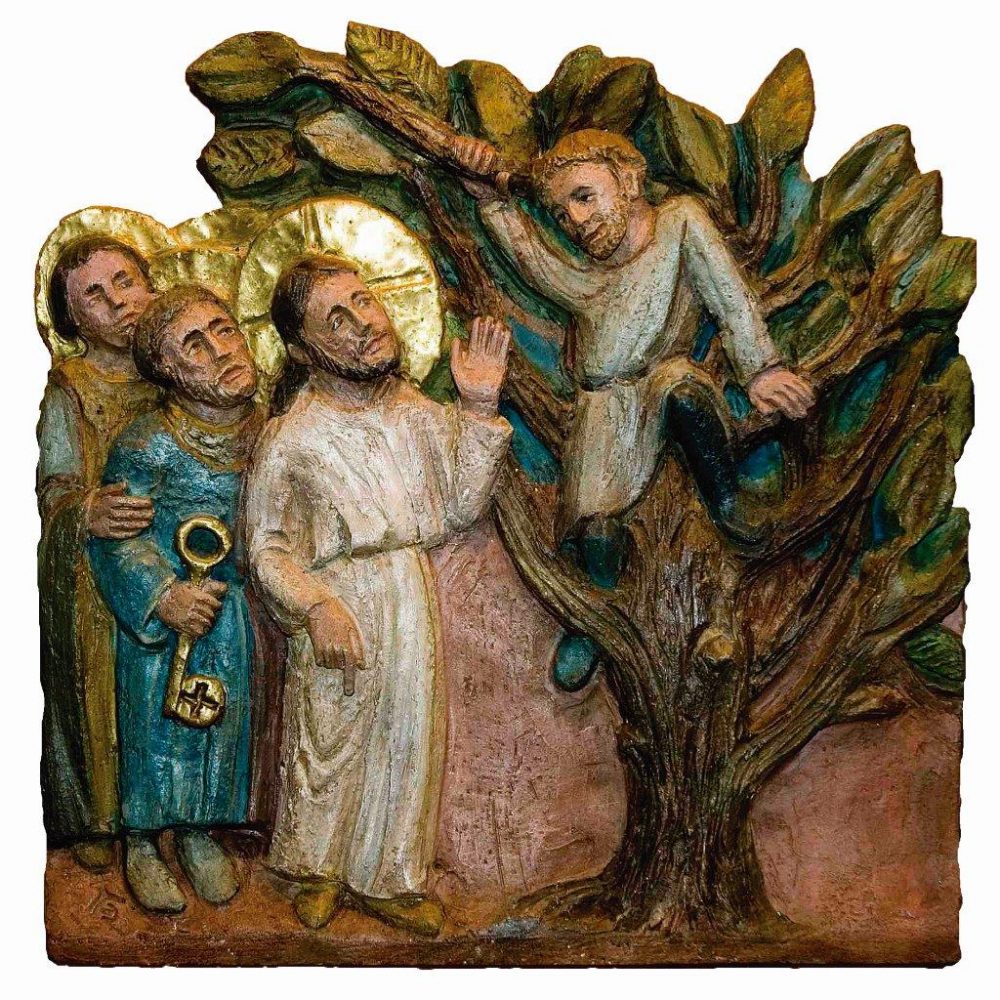Fr. Jijo Kandamkulathy CMF
Claretian Missionaries
31st SUNDAY OF THE YEAR – C
Luke 19:1-10
Zacchaeus, a publican considered evil by all, is in search of Jesus. By a strange twist of fate, the name he carries means pure, righteous. He is short in stature, referring to how he appears in the eyes of all. Zacchaeus is well aware of his condition.
He has everything in life, and yet is deeply dissatisfied. He has participated in many banquets, and is still looking for food that satisfies. The need he experiences is so powerful that he is willing to risk the ridicule of the public. Zacchaeus has heard of Jesus. He knows the harsh judgments He has delivered on wealth, but he also knows that he is “the friend of publicans and sinners” (Lk 7:34). He wants to see Jesus because — he thinks — perhaps He is the only one who may understand his anxieties and inner drama, and he goes up the sycamore tree to see Jesus.
Zacchaeus represents a conscience that is guilty and cringes at every derisive look of friends and neighbors, someone who has lost his self-respect. He has begun to look at himself with the same condemning, hate-filled eyes of others. He has begun to despise himself. He has committed sins, and his sins are public. He has lost face. He is trying to get out of his life of sin, but the loss of self-esteem just does not give him the courage to make a fresh start. He does not even think of touching the clothes of Jesus like the woman with a hemorrhage. He only wants to see him as he hopes to receive all the strength he needs to amend his life by doing this. This man’s faith is even stronger than that of the woman.
In this desperate search, the crowd who accompany Jesus intervene. As it happened with the blind man of Jericho (Lk 18:39), instead of favoring the encounter with the Master, the crowd becomes an impediment. It does not understand that it is the “small,” “the impure,” the outcasts that Jesus is looking for. The reason for this attitude is a defect of sight.
In Zacchaeus, even those who follow Jesus only see the publican, the sinner, the loan shark; no one else. Their discriminatory attitude is like that of the Pharisees. The sight of these “pure” people is so corrupt that it sees evil everywhere, even where there isn’t — in Jesus. “Zacchaeus, come down quickly, for today I must stay at your house.” None of the crowd will pronounce this name because Zacchaeus is “unclean.” Only Jesus calls “Zacchaeus”— pure! For him, he is “pure”, and he is also a son of Abraham.
From above, he sought to see Jesus, but Jesus sees him first from below. In front of the sinner, Jesus always raises his eyes because his position is of the servant who humbled himself for the salvation of all! What have those who looked down on Zacchaeus got? Nothing. With no appeal, their sentences have done nothing but make him wicked. The stern and grim looks of the censors, judges, prosecutors only block the unique look that saves, that tender look of Christ.
The story ends with a dinner. We observe who is at the banquet and who is not, who celebrates and who is sad. The “righteous” should be inside, instead they are all outside murmuring, fretting with rage because they do not agree with the type of guests Jesus desired to have at the banquet.
Zacchaeus was admitted to the banquet of the kingdom not because he was good. He became good later when he involved himself in the party. He was converted when he found out that God loved him even though he was impure, poor, small, indeed, precisely because he was small.
The discovery of this non-judgmental love was the light that dispelled the darkness that enveloped the life of Zacchaeus, and made him realize that only love and giving away his wealth (sharing) are the true sources of joy.
Indebted to Fernando Armellini SCJ for textual analysis


 Follow
Follow


